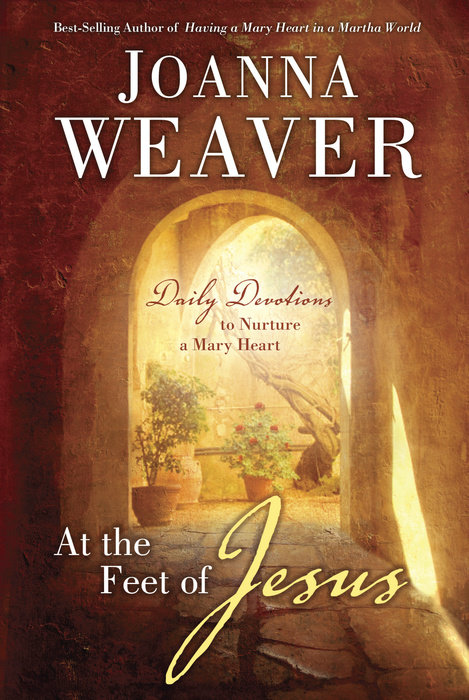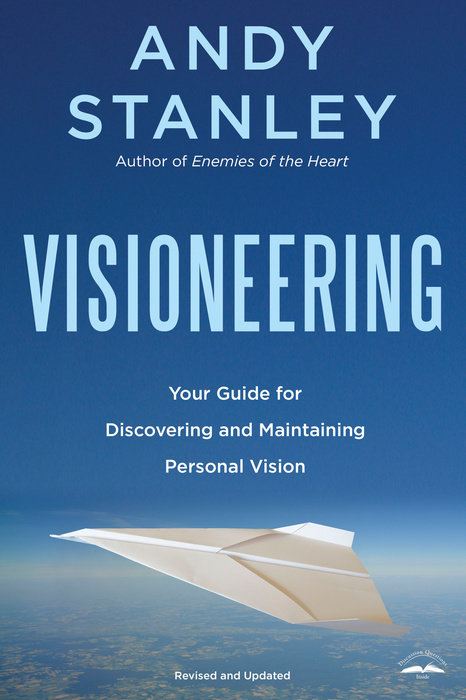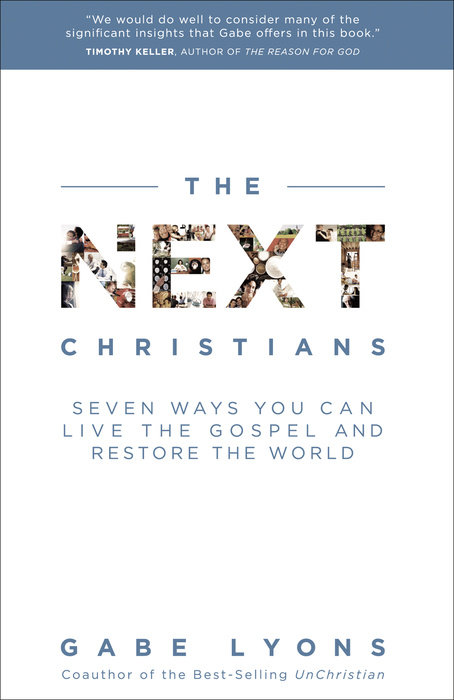What God Originates, He Orchestrates
How is never a problem with God. When he puts something in your heart to do, he goes to work behind the scenes to ensure that it happens. In the meantime, we are to remain faithful to him and focused on the vision. You are not responsible for figuring out how to pull off God’s vision for your life. You are responsible to do what you know to do, what you can do. And then you must wait.
Excerpted from Visioneering by Andy Stanley
Daily Reflection: Are you doing all you can do with God’s vision for your life?
Leading a Life of Legacy
You’ve never met William Joseph Weber either. Let me tell you a little bit about him. [. . .] he never knew a family or a real, permanent home. He never experienced any of the things we normally consider healthy in a “family of origin.” But somewhere along the line, William Weber found Jesus Christ. He determined to put his “confidence in God and keep His commandments” (Psalm 78:7). No, he never knew his own father. But he pursued the ultimate Father. Reading wasn’t easy for him, but he did it. Of all the books in my library today, my favorite is one of hisa worn, broken old copy of Matthew Henry’s Commentary on the New Testament. You can still find traces of his fingerprints there from the coal dust on his hands. My grandfather pursued the Father. His son, Byron, [ … ]
The Power of ‘Ought’
To most of us in the room, that seemed impossible. But Max saw the world differently. And that day, with a moral authority few can claim, he said something profound that crystallizes the restoration theme we’ve seen in the next Christians
“We must recognize the power of the ‘ought.’ It’s the power to change the world! We can’t just see the world in terms of how it is today, or we will always feel defeated,” he said passionately. “But when we see the world in terms of how things ought to be, we can dream for the impossible and work to see it become reality.”
Excerpted from The Next Christians by Gabe Lyons
Daily Reflection:I n what ways do you see the world as it is, not as it “ought to be”?
Reaching Maturity
From the moment we’re born, we tend to associate love with what others do for us and the speed with which they do it. We learn to feel loved when we get our needs metquickly. Sadly, many of us carry the same childish, demanding spirit into our relationship with God. But He knows that if He indulged our insatiable desire to have instantaneous help at every juncture, we would never
grow up. Instead we’d be crippled emotionally and unable to stand, let alone walk, on our own.
Growing to maturity means learning to accept delayed gratification. Part of putting childish ways behind us, spiritually speaking, involves subduing the whiny, demanding part of our flesh that insists that, if God loves us, He must act according to our specifications, our scripts, and especially our time lines.
Excerpted from At the Feet [ … ]
Be a Reflection
In the Bible, James said that our actions, not our words, are the proof of our faith. He wrote in James 2:18, “Now someone may argue, ‘Some people have faith; others have good deeds.’ But I say, ‘How can you show me your faith if you don’t have good deeds? I will show you my faith by my good deeds.’ ” I’ve heard it said that our actions are to our faith and beliefs as our bodies are to our spirits. Your body is the housing of your spirit, the evidence of its existence. In the same way, your actions are the evidence of your faith and beliefs. You have no doubt heard the term “walking the talk.” Your family, friends, teachers, bosses, coworkers, customers, and clients all expect you to act and live in alignment with the beliefs and [ … ]
SNEAK PEEK: The Radical Question and A Radical Idea by David Platt
Challenge the Status Quo
Read the first chapter of The Radical Question and A Radical Idea two-in-one book.
The Radical Question offers a compelling introduction to Radicals challenge to the contemporary church. In this concise message, Platt asks, “What is Jesus worth to you?” Then he explores what a commitment to Jesus would actually look like in action. [ … ]
Dealing with Anxiety
When anxiety strikes and blurs our vision of God’s glory and the greatness of the future that he plans for us, this does not mean that we are faithless, or that we will not make it to heaven. It means our faith is being attacked. At first blow, our belief in God’s promises may sputter and swerve. But whether we stay on track and make it to the finish line depends on whether, by grace, we set in motion a process of resistancewhether we fight back against the unbelief of anxiety.
[. . .] Psalm 56:3 says, “When I am afraid, I put my trust in you.” Notice: it does not say, “I never struggle with fear.” Fear strikes, and the battle begins. So the Bible does not assume that true believers will have no anxieties. Instead, the Bible [ … ]
Faith to Action
My physical challenges are easy to see, yet people only have to talk to me or hear me speak for a few minutes to understand how much joy I have in spite of that. So they often ask me how I stay positive and where I find the strength to overcome my disabilities. My answer, always, is, “I pray for God’s help, and then I put my faith in action.” I have faith. I believe in certain things that I have no tangible proof ofthings I cannot see, taste, touch, smell, or hear. Most of all, I have faith in God. Though I can’t see or touch Him, I believe He created me for a purpose, and I believe that when I put my faith and my beliefs into action, I put myself in a position for God’s blessings.
Excerpted [ … ]





